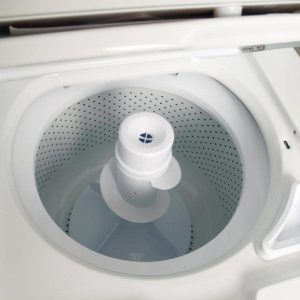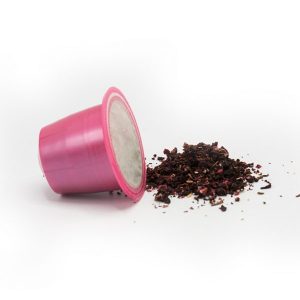How Do You Fix a Noisy Washing Machine When Spinning?
Identifying the Type of Noise
Before you can fix a noisy washing machine when spinning, identifying the type of noise is crucial. Different sounds point to various issues. Here are common noises to listen for:
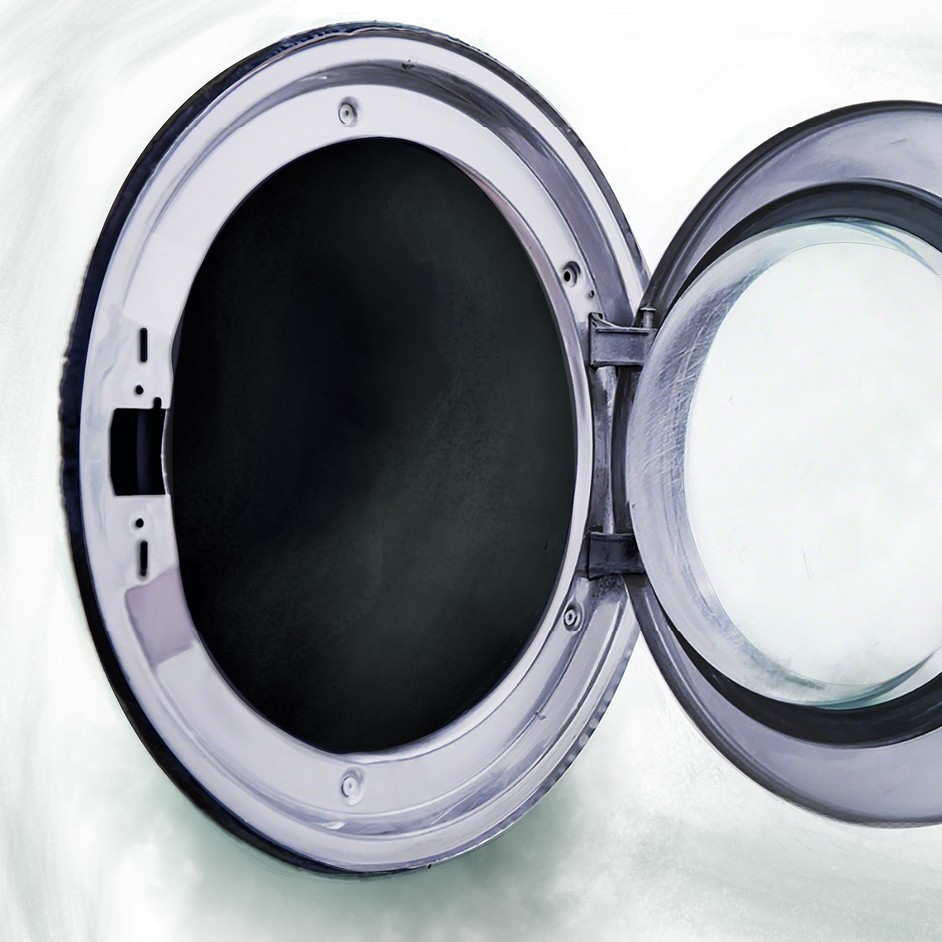
- Grinding or Scraping: This can indicate objects caught between the drum and the outer tub. Coins, buttons, or other small items are often culprits.
- Thumping or Banging: Usually, this suggests an unbalanced load. Redistributing the clothes inside the drum can often solve this issue.
- Squeaking or Screeching: These sounds may be due to worn out bearings or belts, demanding more immediate attention.
Recognizing these noises accurately can guide you in the right direction to troubleshoot your appliance effectively.
Common Causes of a Noisy Washing Machine
Identifying why a washing machine is making noise during spin cycles is crucial for effective troubleshooting. Below are some of the most common causes:
Unbalanced Load
An unbalanced load is one of the primary reasons your washing machine might be noisy. Here’s what typically happens:
- Uneven Distribution: Clothes that clump together on one side of the drum create an imbalance.
- Heavy Items: Single, heavy items like bath mats or towels can upset the balance.
To fix an unbalanced load, redistribute the items inside the drum evenly. Running a smaller load can also help.
Worn Out Bearings
Bearings facilitate smooth drum movements. When they wear out, you hear:
- Screeching or Squealing: Worn bearings often produce a high-pitched noise.
- Increased Vibration: If your machine vibrates more than usual, the bearings might be giving out.
Replacing worn bearings is a technical job that might require professional help.
Objects Caught in the Drum
Small items can get caught in the washing machine, leading to nerve-wracking sounds. Common culprits include:
- Coins, Buttons, or Metal Objects: These can scrape against the drum.
- Clothing with Hard Parts: Zippers or buckles can also cause noise against the drum.
Checking pockets before washing and using garment bags can prevent such issues.
To remove caught objects, you may need to manually check and clear the space between the drum and its casing.
Understanding these issues can help in correctly diagnosing and fixing a noisy washing machine during its spin cycle.
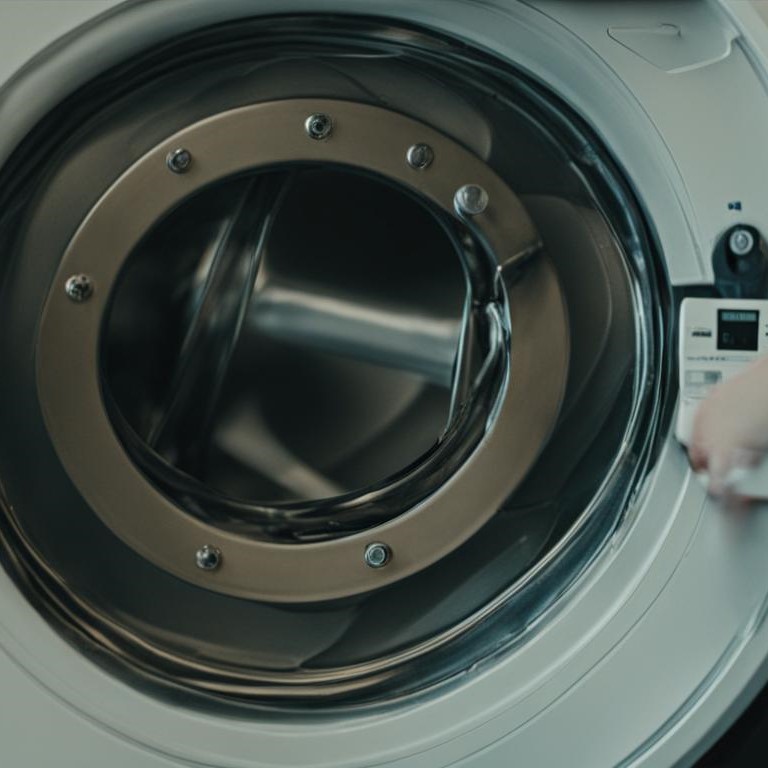 Step-by-Step Troubleshooting Guide
Step-by-Step Troubleshooting Guide
Dealing with a noisy washing machine during spin cycles can be frustrating. Follow this step-by-step guide to pinpoint and address the problem.
Inspecting the Washing Machine Drum
Start by examining the drum of your washing machine. Look for any visible signs of objects stuck or damage to the drum surface. Make sure to unplug your appliance first for safety. Rotate the drum manually and listen for any unusual noise that may give a clue.
Checking for Loose Components
Next, check for loose parts. Fasten any components that have become detached or seem to wobble. These could include the drum paddles, the motor mount, or even the concrete weights. Tight connections can help prevent unwanted noise.
Testing the Spin Cycle
After ensuring everything is secured, run an empty spin cycle. Listen carefully. Does the noise persist? If so, the issue might be more complex, such as a faulty drive belt or motor. In which case, consulting the manual or a professional might be necessary.
By following these steps, you can often uncover the cause of the noise. Each step moves you closer to a solution for a noisy washing machine when spinning. Sometimes, the fix is simple. Other times, it might require more detailed work. If you’re struggling to find the source of the problem, remember that asking how do you fix a noisy washing machine when spinning is a common query, and professional help is always available.
Repair or Replace: Making the Right Decision
When faced with a noisy washing machine during spin cycles, you must decide whether to repair or replace it. This decision requires careful consideration of several factors. Here’s a structured approach to making the right choice:
- Assess the Age of the Machine: If your washing machine is old and nearing the end of its expected lifespan, replacement may be more cost-effective than repair.
- Weigh the Costs: Consider the cost of repairs against the price of a new machine. If the repair cost is more than half of a new washer, consider buying a new one.
- Frequency of Issues: Think about how often your washing machine has issues. Frequent repairs can add up, making replacement a better long-term solution.
- Energy Efficiency: Newer models are often more energy-efficient. Upgrading can save on utility bills and is better for the environment.
- Review Warranty Coverage: Check if your machine is still under warranty. Some repairs may be covered, reducing the financial impact.
- Consider Performance: A new washing machine may offer better performance and features that suit your needs more than your current model.
In terms of how do you fix a noisy washing machine when spinning, repairing minor issues such as unbalanced loads or loose components might suffice. However, for significant problems like worn-out bearings or a faulty motor, you may want to evaluate if replacement is a smarter choice.
Every situation is unique, so balance the pros and cons based on your specific circumstances. Sometimes, investing in a new machine can be the most reliable and cost-effective option in the long run.
Maintenance Tips to Prevent Future Noises
To avoid future disturbances, regular maintenance of your washing machine is key. Here are essential tips to follow:
- Check Pockets Before Washing: Prevent small items like coins and buttons from getting stuck by emptying all pockets.
- Use Garment Bags: For clothing with metal parts such as zippers and buckles, garment bags provide an extra layer of protection.
- Avoid Overloading: Distribute your clothing evenly, and don’t exceed the recommended load size to prevent unbalance.
- Regular Inspections: Periodically inspect your washing machine for any signs of wear and tear. Pay special attention to the drum and hoses.
- Level the Machine: Ensure your washing machine is leveled properly. An unlevel machine can cause vibrations and noise during spin cycles.
- Tighten Loose Fittings: Occasionally check and tighten any bolts or fittings that may have come loose over time.
- Clean the Washer: Remove detergent build-up and debris by cleaning the drum and components based on the manufacturer’s guidelines.
By implementing these maintenance tips, you can significantly lower the risk of running into loud washing machine problems during spin cycles. Moreover, it helps extend the life of your appliance. If you’re unsure how to maintain your machine, consult the user manual or contact a professional for guidance. Remember, a little care goes a long way in the smooth and quiet operation of your washing machine.
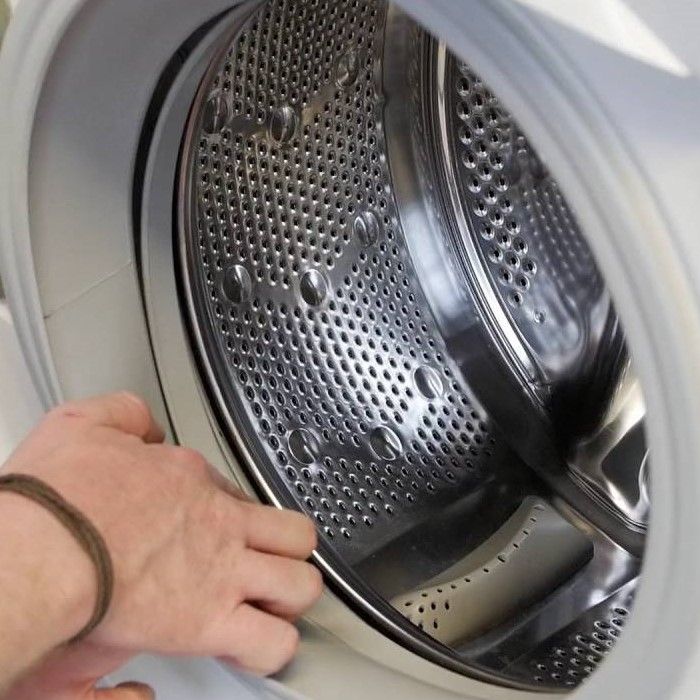 Professional Repair Services vs. DIY: What You Need to Know
Professional Repair Services vs. DIY: What You Need to Know
When it comes to ‘how do you fix a noisy washing machine when spinning?’, you may ponder whether to attempt a DIY fix or call in a professional. Both options have their own sets of advantages and disadvantages.
Advantages of DIY Repair
- Cost Savings: Handling repairs yourself can save on service fees.
- Learning Experience: You gain valuable skills and knowledge about your appliance.
- Immediate Action: No need to wait for a service appointment.
However, DIY repairs require you to have the right tools and understanding of the machine.
Advantages of Professional Repair Services
- Expertise: Professionals have the skills and experience.
- Warranty: Their work often comes with a guarantee.
- Safety: They know how to handle electrical and mechanical components safely.
Choosing professional services can prevent further damage, which may result from incorrect DIY fixes.
When to Choose Professional Repair Services
- Complex Issues: If the problem is beyond basic issues like unbalanced loads.
- Lack of Tools/Knowledge: Not having the right tools or understanding of the machine mechanics.
- Safety Concerns: When electrical components are involved, it’s safer to hire a professional.
When DIY Might Be Appropriate
- Simple Fixes: If the issue is straightforward, like redistributing laundry.
- Confidence and Knowledge: When you have the aptitude and resources to tackle the task.
In conclusion, weighing the complexity, safety, and potential cost implications of the repair task will guide whether to opt for DIY or professional services. Make sure to follow the manufacturer’s guidance and keep your machine’s warranty in consideration before proceeding with any form of repair.
